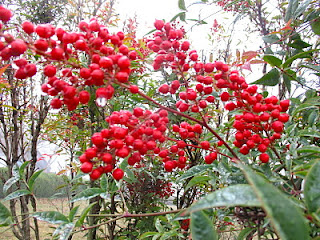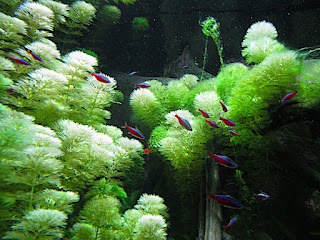It never rains in Southern California - true. But in Vancouver, it is a different story.
Between November and February, I never had a chance to take photos in the
sunshine. It rains at least once a day - but it is mild and nature is green all
year round, even roses bloom here in mid-winter.
.
.
.
by the Canadian Pacific Railway for the city's well-off families. It was planned
by Frederick Law Olmsted, the American landscaper who designed Central
.
Planting trees and shrubs and creating pocket parks in Vancouver are now
viewed as ways to humanize the urban jungle, make streets safer, encourage
more pedestrians, and enhance neighborhood pride. In many residential
neighborhoods, I saw small roundabouts on street crossings that were lovingly
planted with perennials and low shrubs. Nice to look at even in winter!
.
Steady rain gave me the idea of going somewhere indoors. A gallery? A day
spa? I saw an aquarium sign within Stanley Park and hopped on a bus that
drove directly into the park, just 200 meters from the aquarium. The aquarium is
home to 65,000 animals, from sea otters to turtles, sea lions, and fishes from all
over the world. The admission was hefty, almost 50 dollars,
but it was well worth it.
.
The aquarium tops regular lists of the best ones in the world.
The cafe, bar, and restaurant looked appealing, but I had just lunch.
.
.
.
.
.
On another occasion, driving into town from the east, I got lost and found myself
suddenly on Granville Island. It is a peninsula, built in the 1960s after it had been a
sandbar, used for industrial purposes. The 38-acre Granville peninsula is a hub
for art, culture, and food.
The public market sells fresh produce and baked goods, but there are also
artist studios, and even a waterfront theater.
.
Commercial Drive Area
I was lucky that my friends lived close by, in a beautiful neighborhood, so I got to
enjoy this lovely strip. It is home to Vancouver’s officially designated Little Italy,
eight blocks representing over 60 years of Italian heritage as well as a tapestry of
other cultures.
.
.
The Drive
To celebrate, The Drive hosts Italian Day every June, one of the city’s
largest annual cultural festivals. It is a multicultural and bohemian street in leafy
surroundings which has hundreds of local gems and several parks to explore.
.
.
Davie Street
It stretches from Yaletown to Stanley Park and is most interesting in its western part:
the LGBTQ+ community has found a welcoming home in this district, especially
around Jervis St. A stroll through the area reveals a collection of well-preserved
heritage mansions and apartments in the Queen Ann and Georgian Revival styles.
.
Gastown
This area is Vancouver’s oldest neighborhood, where the Gastown Steam Clock
(still working!), the area’s most recognized landmark, is located. By night,
this fashion-forward retail and commercial district serves as the city’s party
hub with bar-crammed streets.
South of Gastown lies Canada’s largest Chinatown.
.
.
Queen Elizabeth Park Area
Five blocks east of the Van Dusen Botanical Garden is Vancouver’s highest hill
with a beautiful rose garden and the Quarry Garden. East of the park is a hipster
haven with indie coffee shops, vegetarian restaurants, vintage fashion, and vinyl
record stores.
.
Shaughnessy
Shaughnessy is one of Vancouver’s oldest and most prestigious neighborhoods.
Plainly said: all around the VanDusen Botanical Garden, but more precisely, it is bordered
by 16th Avenue to the north, 41st Avenue to the south, Oak Street to the east, and
East Boulevard to the west. Shaughnessy homes tend to be on large, manicured lots
and the homes tend to have British and early American estate-like design elements.
Stunning landscaping, indeed! Very walkable and flat. It also tends to be quiet with
minimal vehicle or foot traffic. A perfect area for relaxing walks
<><><><><>


































